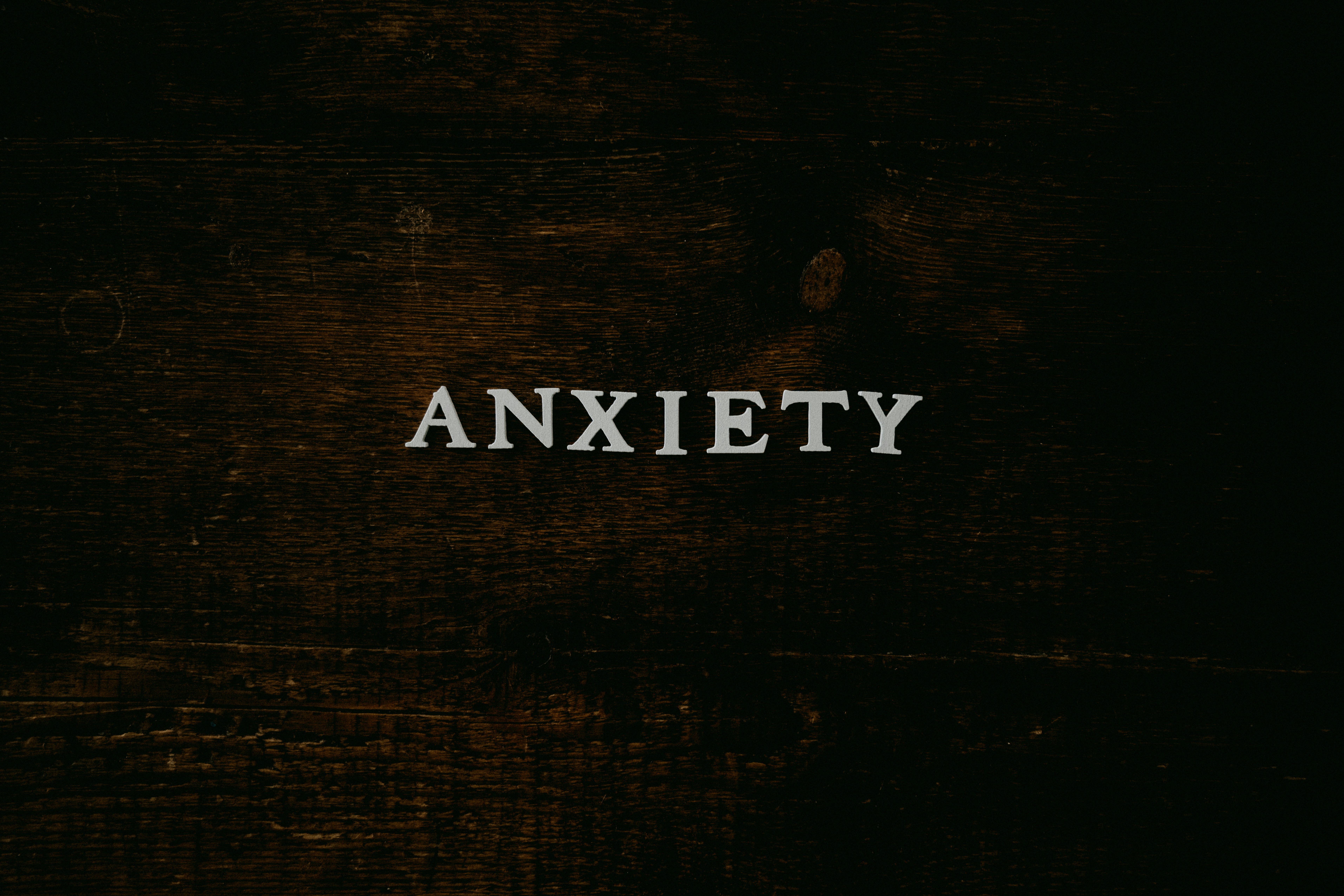Introduction to Climate Anxiety
Climate anxiety is an emerging mental health concern that arises from the distress and apprehension individuals experience due to the challenges posed by the climate crisis. As the impacts of climate change become increasingly conspicuous, with severe weather events, rising sea levels, and biodiversity loss, many people are grappling with feelings of helplessness, fear, and dread concerning the future of the planet. This phenomenon has been characterized as a significant psychological response to the perceived threats of climate change, and it is becoming more prevalent in our society.
A striking indication of this rising mental health issue can be showcased by the 565% increase in Google searches for the term ‘climate anxiety’ in 2021 alone. This substantial spike highlights a growing awareness and concern, reflecting not only the global dialogue around climate change but also the emotional toll it exerts on individuals. As discussions of climate policies, sustainability efforts, and environmental activism become more mainstream, so too does the acknowledgment of the psychological burden that accompanies these pressing issues.
Individuals suffering from climate anxiety may experience a range of symptoms, including persistent worry, sadness, or even panic regarding environmental degradation and its ramifications. This anxiety can manifest itself in various ways, from feelings of guilt related to personal consumption habits to overwhelming despair about the state of the planet. Moreover, it is important to understand that climate anxiety is not merely an individual concern; it is often shared among communities, creating a collective sense of urgency and vulnerability.
As we delve further into this subject, it becomes imperative to explore not just the emotional ramifications of climate anxiety but also the potential coping strategies and pathways available for individuals confronting these challenges. Addressing climate anxiety, ultimately, requires a multifaceted approach that acknowledges both the psychological impacts and the societal responsibilities concerning climate change.
The Link Between Extreme Weather Events and Mental Health
The escalating frequency and intensity of extreme weather events, attributed to climate change, pose significant challenges not only to our physical environment but also to our mental well-being. Research indicates a direct correlation between such disasters and various psychological issues, suggesting that individuals affected by these events may experience an array of emotional and cognitive impacts. The aftermath of hurricanes, floods, wildfires, and other natural disasters can create a pervasive sense of loss and anxiety that permeates the lives of those who survive.
One critical aspect of this psychological impact is the phenomenon of trauma. Individuals exposed to extreme weather events often experience acute stress reactions, which can develop into post-traumatic stress disorder (PTSD). Survivors may relive the catastrophe through flashbacks, persistent nightmares, and severe anxiety, which can hinder their ability to resume normal life. Furthermore, the unpredictability of climate-related events can lead to chronic worry about future disasters, fostering a continuous state of distress.
In addition to PTSD, other mental health issues, such as depression and anxiety disorders, have been linked to extreme weather occurrences. The destruction of homes, loss of livelihoods, and displacement from communities can contribute to a profound sense of hopelessness and isolation among the affected individuals. The psychological burden often increases when individuals feel overwhelmed by the magnitude of recovery efforts or perceive a lack of support from local or national authorities.
Importantly, marginalized communities frequently bear the brunt of these emotional consequences, as they often lack sufficient resources to cope effectively with trauma, exacerbating existing mental health disparities. Addressing the psychological effects of climate-induced disasters, thus, becomes essential for fostering resilience and promoting mental health recovery. Recognizing the interplay between extreme weather events and mental health is critical for developing comprehensive strategies that support affected populations in rebuilding their lives and communities.
Understanding Climate Anxiety: Causes and Symptoms

Climate anxiety, a term increasingly recognized in contemporary conversations about mental health, encompasses a range of psychological responses to the climate crisis. As individuals grapple with the daunting prospect of environmental degradation, several key factors significantly contribute to the rise of climate anxiety. One of the primary causes is the profound uncertainty about the future. Concerns regarding the stability of ecosystems, the economy, and potential shifts in societal norms can lead to heightened levels of anxiety, as individuals struggle to envision a stable and sustainable future.
Feelings of helplessness also play a pivotal role in the development of climate anxiety. Many people feel overwhelmed by the sheer scale of the climate crisis, perceiving their individual actions as insufficient to foster meaningful change. This sense of impotence can trigger a spiral of negative emotions, contributing to a pervasive feeling of despair. Furthermore, personal experiences with environmental degradation, such as witnessing natural disasters or experiencing severe weather events, can lead to acute stress responses and ongoing anxiety about future occurrences.
Common symptoms of climate anxiety are diverse, often manifesting in both emotional and physical symptoms. Emotionally, individuals may experience persistent worry, sadness, or anger, alongside a sense of dread about the future. This emotional toll can lead to difficulties in concentrating, fatigue, and irritability. Physically, symptoms may include sleep disturbances, increased heart rate, or gastrointestinal issues, highlighting the deep connection between mental health and environmental concerns. The seriousness of climate anxiety cannot be overstated, as it reflects not only an internal struggle but also a broader societal acknowledgment of the mental health repercussions of the climate crisis. Understanding these causes and symptoms is crucial for fostering dialogue and support for those affected.
Who is Most Affected by Climate Anxiety?
Climate anxiety, defined as the persistent worry about climate change and its implications, has emerged as a significant psychological phenomenon impacting various demographics. Research indicates that certain groups are particularly vulnerable to the psychological effects of the climate crisis, marking them as the “most affected” by climate anxiety.
Young people are at the forefront of this issue. Studies show that adolescents and young adults experience higher levels of climate-related distress compared to older generations. A report from the American Psychological Association highlights that nearly 60% of young individuals express feeling fearful or anxious about the future due to climate change. This concern often stems from their awareness of the long-term consequences of environmental degradation, a reality they will inherit.
Marginalized communities also bear a disproportionate burden of climate anxiety. Many individuals from these groups face both environmental and socio-economic disadvantages, which compounds their stress regarding climate change. Research has revealed that low-income populations are more likely to experience adverse effects from climate events, such as natural disasters and extreme weather conditions, leading to heightened anxiety over personal safety, economic stability, and health outcomes.
Furthermore, individuals residing in high-risk areas, such as coastal regions prone to flooding or wildfires, are particularly susceptible. They often endure a palpable sense of uncertainty as they navigate the constant threat posed by extreme weather events. A study published in the journal Nature found that residents in these zones reported significantly higher levels of anxiety related to climate risks than those living in less vulnerable locations.
Overall, the interplay between demographic factors and climate anxiety illustrates the necessity for targeted mental health support, especially for the youth, marginalized communities, and residents of high-risk areas. Understanding these vulnerabilities provides a foundation for addressing the psychological repercussions of the evolving climate crisis.

The Role of Social Media and Climate Narratives
Social media has become a powerful vehicle for disseminating information and shaping public perceptions regarding the climate crisis. Platforms such as Twitter, Instagram, and Facebook enable users to share content rapidly, significantly amplifying climate narratives that reach millions. In this digital age, the climate crisis is consistently brought to the forefront of discussions. Informational graphics, personal testimonials, and impactful documentaries often dominate feeds, creating a heightened awareness about climate change.
However, while social media can facilitate understanding, it can also contribute to a pervasive sense of anxiety regarding the future. Continuous exposure to alarming posts and catastrophic imagery can lead to what some experts refer to as “climate anxiety.” This phenomenon is characterized by overwhelming feelings of helplessness and worry concerning the potential implications of climate change. The narratives that proliferate online often emphasize dire predictions or highlight environmental disasters, which can escalate anxieties in individuals who may already feel vulnerable to the crisis.
Misinformation on social media platforms also plays a critical role in shaping perceptions of climate change. Inconsistent facts and exaggerated claims can sow confusion and deepen public concern. While some narratives aim to encourage activism and inspire changes in behavior, false information can lead to misinformed decisions and further contribute to feelings of despair. The psychological impact of social media narratives cannot be underestimated; individuals may struggle to distinguish between valid scientific discourse and misleading rhetoric.
Overall, it is essential for users of social media to engage critically with climate narratives, seeking reliable sources and promoting constructive discussions. Finding a balance between raising awareness and fostering positive action is crucial in mitigating the anxieties brought forth by the climate crisis while encouraging informed engagement with this pressing global issue.
Coping Mechanisms for Climate Anxiety
The escalating climate crisis has led to an upsurge in climate anxiety, a psychological response characterized by distress regarding environmental degradation. Individuals experiencing this emotional turmoil may find solace and resilience through diverse coping strategies. One beneficial approach is to connect with nature, as studies indicate that spending time outdoors can have a calming effect, reducing feelings of anxiety. Whether it involves a simple walk in a nearby park or participating in nature-based activities, reconnecting with the environment fosters a sense of belonging and peace.
Engaging in community activism represents another vital coping mechanism. Joining local environmental groups or participating in climate action initiatives not only channels anxiety into positive action but also creates a supportive network. This collective endeavor can alleviate feelings of helplessness and provide individuals with a sense of purpose. Community involvement helps individuals realize they are part of a larger movement advocating for change, thereby reinforcing their emotional well-being.
Practicing mindfulness techniques can also mitigate the symptoms of climate anxiety. Mindfulness encourages individuals to stay present, enabling them to manage overwhelming emotions related to the climate crisis. Techniques such as meditation, deep breathing, and yoga promote mental clarity and emotional regulation, allowing individuals to navigate their feelings of anxiety more effectively. Such practices help cultivate resilience, equipping individuals with tools to confront their fears related to climate change.
Finally, it is essential to acknowledge when professional help may be necessary. A licensed therapist or counselor can provide valuable strategies tailor-made for managing climate anxiety, allowing individuals to work through their feelings in a supportive environment. Engaging in professional mental health services can empower individuals, fostering a greater understanding of their struggles and equipping them with effective coping mechanisms.
The Importance of Climate Action in Alleviating Anxiety
The correlation between the climate crisis and mental health has garnered significant attention in recent years. Individuals facing the overwhelming reality of climate change often experience anxiety and feelings of helplessness. However, taking proactive steps towards climate action can serve as a crucial antidote to these negative emotions. Engaging in sustainability efforts, advocating for policy changes, and participating in community initiatives empowers individuals, offering a sense of agency in the face of an uncertain future.
When people take tangible actions, such as reducing their carbon footprint, advocating for renewable energy, or supporting local environmental organizations, they often report a reduction in anxiety levels. This involvement instills a feeling of empowerment, counteracting the pervasive sense of helplessness that often accompanies discussions about the climate crisis. By actively participating in efforts aimed at mitigating climate change, individuals contribute not only to the health of the planet but also to their own psychological well-being.
Community support plays a pivotal role in this dynamic. When individuals come together to tackle the climate crisis, they foster a sense of belonging and shared purpose. Collaborating with others who share similar concerns reinforces the idea that collective action has the potential to create meaningful change. This camaraderie can alleviate feelings of isolation that often accompany climate-related anxiety, transforming what can feel like an overwhelming burden into an opportunity for connection and empowerment.
Moreover, engaging in advocacy—whether at local, national, or global levels—enables individuals to feel that their voices matter. Each action taken in support of sustainability not only contributes to environmental causes but also cultivates resilience and hope. Participation in climate action initiatives nurtures a proactive mindset, enhancing psychological well-being and promoting a more positive outlook on the future. In essence, the journey toward a sustainable world is not just about preserving the environment; it significantly contributes to alleviating the anxiety associated with it.
Support Resources for Those Experiencing Climate Anxiety
The growing awareness of the climate crisis has undoubtedly led to mental health challenges for many individuals. Climate anxiety, an increasingly prevalent condition, refers to the feelings of fear, worry, and helplessness related to environmental degradation and climate change. Fortunately, various resources are available to support individuals experiencing these distressing emotions. Accessing professional help is essential for managing climate anxiety effectively.
Helplines specifically designed to address mental health concerns are invaluable. Organizations such as the National Alliance on Mental Illness (NAMI) offer confidential support and can provide immediate assistance in times of distress. In addition, the Substance Abuse and Mental Health Services Administration (SAMHSA) provides a national helpline that connects individuals to local resources tailored to their needs.
Support groups can also be effective for those grappling with climate anxiety, allowing individuals to share their experiences and connect with others who understand their struggles. Numerous online platforms host these groups, such as Climate Café and the Eco-Anxiety Network, where participants can engage in discussions centered on climate-related emotional challenges.
For those seeking professional guidance, mental health professionals specializing in eco-anxiety are increasingly accessible. Websites such as TherapyDen and Psychology Today allow individuals to search for therapists who specifically address climate-related concerns, ensuring that support is tailored to those in need. Furthermore, universities and local mental health clinics may also provide workshops or group sessions focused on coping strategies associated with climate anxiety.
Online communities play a vital role in paving a path toward solutions and fostering resilience. Platforms such as Instagram and Facebook are replete with organizations dedicated to climate awareness, which can also serve as sources of support. These platforms help individuals to engage with others who share their concerns, creating a collective strength in the fight against climate anxiety.
Conclusion: Moving Forward with Hope
Throughout this blog post, we have explored the intricate relationship between the climate crisis and its psychological impact on individuals and communities. The growing awareness of climate anxiety is indicative of a broader emotional response to environmental degradation, and it is essential to recognize this phenomenon as a legitimate mental health concern. Acknowledging the toll that climate-related fears and uncertainties can take on mental well-being is the first step toward addressing this pressing issue.
Moreover, it is important to understand that the feelings of anxiety and distress are often intertwined with the reality of living in a world where environmental changes are increasingly visible and alarming. To confront these emotions, individuals are encouraged to seek support from mental health professionals who are aware of the unique challenges posed by climate-related stressors. Engaging in open discussions about these feelings can also foster a sense of community and validation, reducing stigma and helping individuals express their concerns in a constructive manner.
Taking proactive steps toward sustainability can serve as a powerful antidote to climate anxiety. By getting involved in local environmental initiatives, advocating for policy changes, or participating in community-building activities, individuals can reclaim a sense of agency in the face of overwhelming challenges. These actions promote not only personal empowerment but also collective resilience as we work towards a more sustainable future.
Ultimately, while the climate crisis poses significant psychological challenges, it also offers an opportunity for growth, creativity, and collaboration. By embracing hope and encouraging one another to take meaningful action, we can cultivate a sense of purpose amid uncertainty. Together, we must remind ourselves that a sustainable future is within our reach, fueled by optimism and collective effort.



